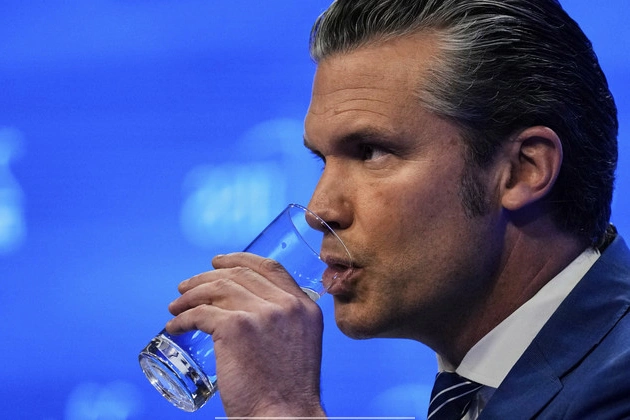
Defense Secretary Pete Hegseth will not attend a Wednesday meeting of 50 defense ministers at NATO headquarters in Brussels that has been critical to coordinating military aid for Ukraine, marking the first time in three years a Pentagon chief has skipped the event.
The regular meetings of NATO defense ministers and others have coordinated funding for the Ukraine war, and have emerged as a key component for Western aid for Kyiv as it has battled Russian forces. But the Trump administration has distanced itself from the group, handing over leadership to the U.K. and Germany.
The Absence and Its Implications
Hegseth’s absence appears to signal further softening of the Trump administration’s relationship with Europe, and Ukraine.
The Defense secretary will be in Brussels for Thursday’s meeting of NATO defense ministers but his place at Wednesday’s Ukraine Defense Contact Group will be taken by U.S. ambassador to NATO Matthew Whitaker, according to a defense official and two people familiar with their plans, all of whom were granted anonymity to discuss internal matters.
The U.K. and Germany took over leadership of the group in February after Hegseth said the U.S. would no longer play a role in the monthly meetings established by then-Defense Secretary Lloyd Austin in April 2022 after the full-scale Russian invasion of Ukraine.
Since that February meeting, U.K. Defense Minister John Healey, and Germany’s defense chief, Boris Pistorius, have run the show, with Hegseth only attending virtually last month. The pair will chair Wednesday’s meeting as well.
The Trump administration is continuing to ship weapons and equipment to Ukraine under a $61 billion aid package established by former President Joe Biden.
The Ukraine gathering of defense ministers comes three weeks before many of them will come together once again for NATO’s annual summit in The Netherlands on June 24-25. Leaders from across the alliance will attend that two-day event, including President Donald Trump, who will likely command an outsize presence as European leaders wait for the administration’s Europe and Russia policies to come into focus.
Ambassador Whitaker said last month that the U.S. will begin talks with allies later this year about potential troop withdrawals from Europe, but that nothing has been decided. Hegseth, during his first visit to NATO in February, warned that the American military presence in Europe was “not forever,” a comment that sent ripples of concern throughout the alliance.
During that meeting, Hegseth also admonished European leaders for not spending enough on defense and controversially laid down a series of preconditions for Ukraine to meet before entering into peace talks with Russia, including forgoing an invitation to join NATO and not asking for a return to its pre-invasion borders.











